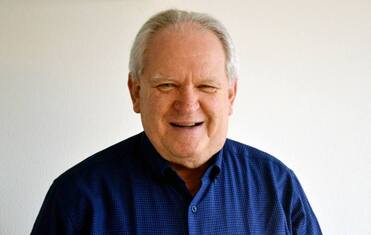From Trauma to Formativeness: Trauma as Distortions of Form
A Workshop with Jim Feil Live and Virtual
April 21-14, 2022
Online Only
Broadcast start times:
7 am Pacific US
8 am Mountian US
9 am Central US
10 am Eastern Us
2 pm London
3 pm Spanish
We are presently experiencing a massive interest in the subject of trauma, led by a host of researchers and clinicians around the world. A number of methodologies and figures have emerged in this conversation, including individuals such as Gabor Mate, Stephen Porges, Peter Levine, Judith Hermann, and many more. Their approaches vary, although much of this work emphasizes somatic and neurobiological processes.
Stanley Keleman is a pioneer in the field of somatic education. His work, Formative Psychology, has influenced many professionals in the somatic movement. In 1989 he published Patterns of Distress: Emotional Insults and Human Form, in which he outlines his unique perspective on traumatic events. He acknowledges the consequences of overwhelming experience, and the wide-ranging characterological and neurological implications of trauma, and demonstrates how these consequences impact our “form” and our developmental trajectory.
As he says, “Form is the primary concern of that which lives.” His work on embodiment stems from this statement, as do all the various procedures, practices and exercises that he uses in his Formative Psychology. He addresses the various psychological and physiological effects of traumatic experience as distortions of form, or insults to form. This focus on form provides highly effective pathways for reorganizing traumatic states, and offers an additional sense of optimism and hope.
Although Keleman’s work will be the primary influence in the methodology presented in this seminar, other important sources include Polarity Therapy, Craniosacral Biodynamics, and Pre and Perinatal understanding. Together, all this work is synthesized under the name Formative Embodiment.
This course will serve as an introduction to the following topics:
Takeaways from this seminar:
Stanley Keleman is a pioneer in the field of somatic education. His work, Formative Psychology, has influenced many professionals in the somatic movement. In 1989 he published Patterns of Distress: Emotional Insults and Human Form, in which he outlines his unique perspective on traumatic events. He acknowledges the consequences of overwhelming experience, and the wide-ranging characterological and neurological implications of trauma, and demonstrates how these consequences impact our “form” and our developmental trajectory.
As he says, “Form is the primary concern of that which lives.” His work on embodiment stems from this statement, as do all the various procedures, practices and exercises that he uses in his Formative Psychology. He addresses the various psychological and physiological effects of traumatic experience as distortions of form, or insults to form. This focus on form provides highly effective pathways for reorganizing traumatic states, and offers an additional sense of optimism and hope.
Although Keleman’s work will be the primary influence in the methodology presented in this seminar, other important sources include Polarity Therapy, Craniosacral Biodynamics, and Pre and Perinatal understanding. Together, all this work is synthesized under the name Formative Embodiment.
This course will serve as an introduction to the following topics:
- Primary Pulsation – The Body’s “Metronome” and Organizing Principle.
- The Embryological Foundations of Formativeness – Morphogenesis
- Boundaries and Form-Building – Porosity, Motility, Rigidity and Density
- Action – The Fundamental Imperative of the Human Form – The Body as “Organized Action”
- Formative Embodiment – Its Implications for Managing Stress and Trauma
- The Formative Narrative – Building Differentiation and Coherence
- Formative Methodology for Therapy and Self-Management
- Stanley Keleman’s Bodying Practice – The Dynamic of Embodying, Rebodying, and Cobodying.
- VMCE – Voluntary Motor-Cortical Effort – Keleman’s “Royal Road to the Unconscious” and to self-forming.
Takeaways from this seminar:
- An appreciation of how a formative perspective can be practiced both as a stand-alone procedure, and enriches other approaches to trauma, such as SE, Compassionate Inquiry, EMDR, NARM, Craniosacral Biodynamics, Polarity Therapy, Psychotherapy, Art Approaches.
- A simple method to support the process of embodiment as it reorganizes defensive reactions to trauma, including simple dissociative responses.
- How the understanding of constitutional typology and somatypes can provide powerful resources in dealing with life challenges.
- A procedure for using muscular micro-movements to help stabilize behavior and reduce excessive arousal and activation.

About Jim Feil
Dr. Jim Feil, MA, DC, RPP has over 45 years in the study, practice and teaching of energetic and somatic therapeutic practices. His first career was as teacher of English and American Literature.
He began his career in therapy by studying with the founder of Polarity Therapy, Dr. Randolph Stone in 1970, and went on to earn his Doctor of Chiropractic degree in California in 1986. He began studying Formative Psychology with Stanley Keleman in 1981, continuing until his passing in 2018.
He has studied and taught Craniosacral Biodynamics (with Franklyn Sills), and Pre and Perinatal Therapy among other methodologies. He works with adults using verbal and body-oriented techniques, specializing in formative and somatic methodologies. He has taught in the US, throughout Europe and in China.
His work directs itself at helping individuals form themselves to effectively and competently respond to life transitions, challenges, crises, and opportunities.
Dr. Jim Feil, MA, DC, RPP has over 45 years in the study, practice and teaching of energetic and somatic therapeutic practices. His first career was as teacher of English and American Literature.
He began his career in therapy by studying with the founder of Polarity Therapy, Dr. Randolph Stone in 1970, and went on to earn his Doctor of Chiropractic degree in California in 1986. He began studying Formative Psychology with Stanley Keleman in 1981, continuing until his passing in 2018.
He has studied and taught Craniosacral Biodynamics (with Franklyn Sills), and Pre and Perinatal Therapy among other methodologies. He works with adults using verbal and body-oriented techniques, specializing in formative and somatic methodologies. He has taught in the US, throughout Europe and in China.
His work directs itself at helping individuals form themselves to effectively and competently respond to life transitions, challenges, crises, and opportunities.
Discover Jim Feil
|
|
|


